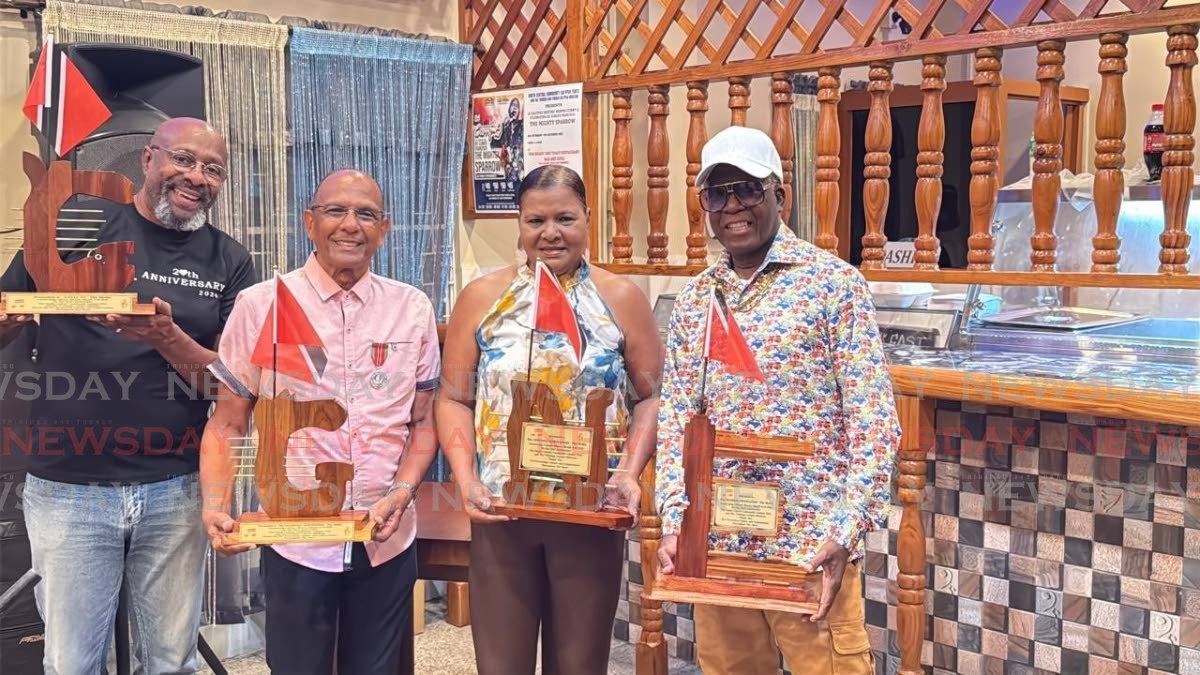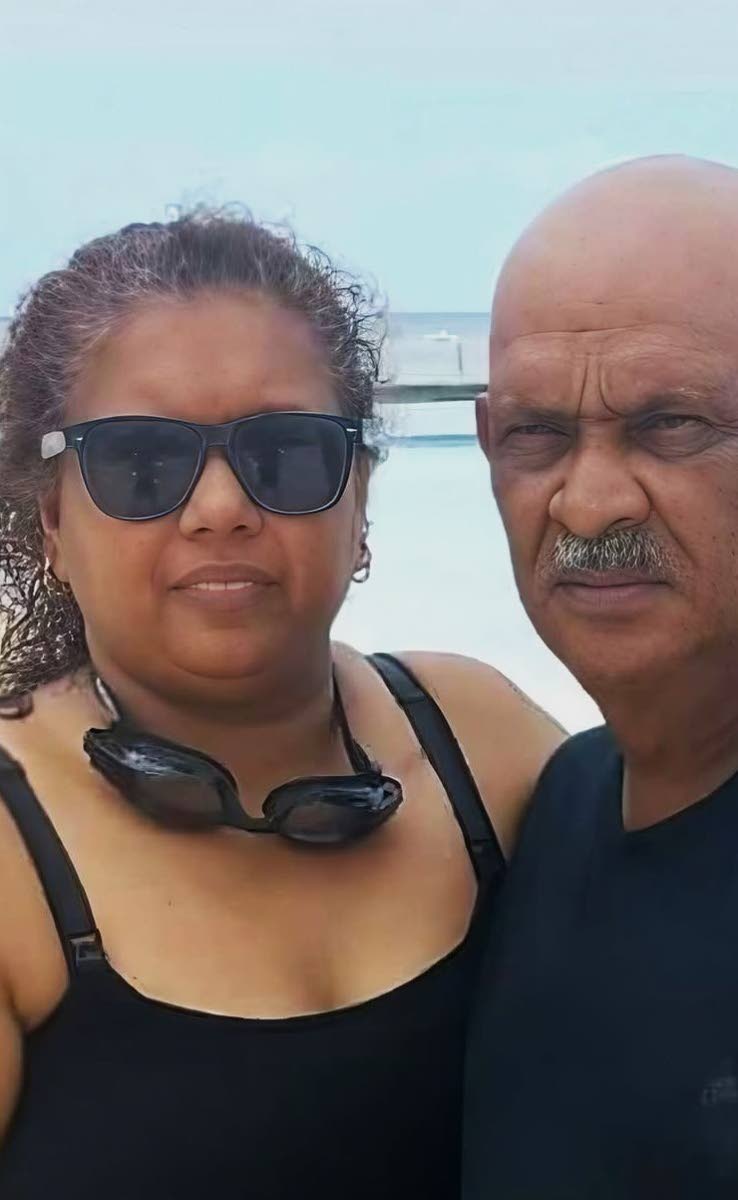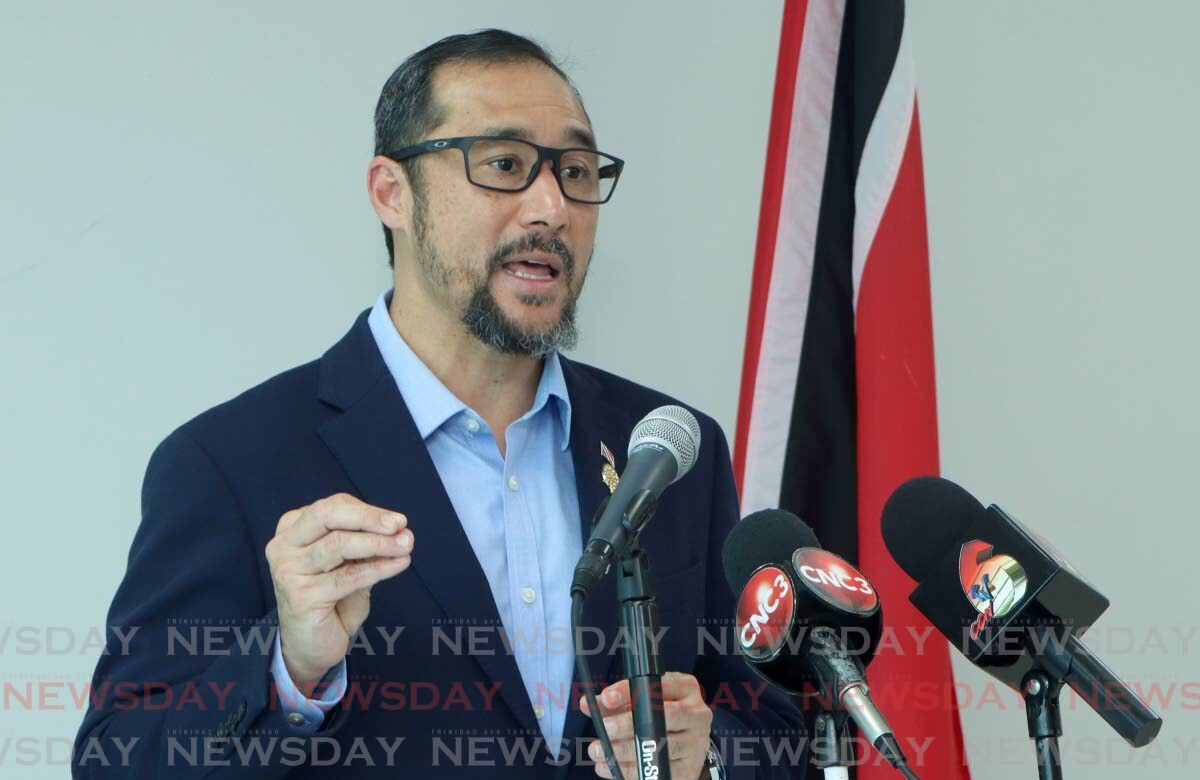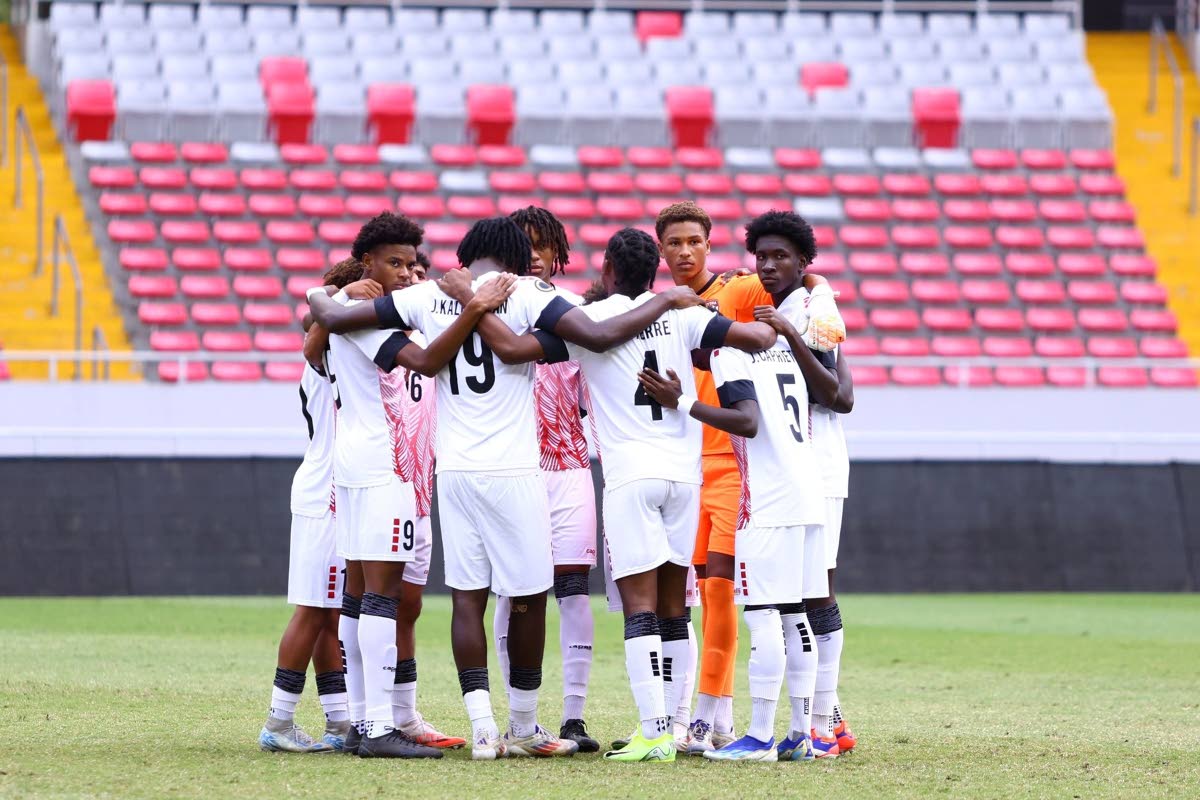For many, the allure of doughnuts lies in their irresistible combination of soft, pillowy texture and rich, comforting flavors. Naomi Anderson, founder of Unicakery in Port of Spain, Trinidad & Tobago, shares her journey of transforming a simple recipe into a culinary masterpiece. Anderson, a seasoned pastry chef with over 12 years of experience, reveals that it was this fried doughnut recipe that changed her perspective on the beloved treat. The recipe, which combines basic ingredients like flour, yeast, and spices, demonstrates how patience and precision can yield extraordinary results. The process begins with activating yeast in warm milk, followed by kneading a dough infused with cinnamon and nutmeg. After a period of rising, the dough is shaped, fried to golden perfection, and finished with a dusting of cinnamon sugar or a glaze. Anderson emphasizes the joy of watching the doughnuts puff up in the oil, filling the kitchen with an aromatic blend of spices. At Unicakery, she not only crafts specialty cakes and desserts but also fosters a community of baking enthusiasts through hands-on workshops and mentorship. Her passion for culinary education continues to inspire both novice and experienced bakers alike. For more insights and recipes, visit Unicakery’s website or follow their social media channels.
博客
-

Kkwabaegi House introduces: Doughnuts with a twist
At just 21 years old, Shyanne Antoine of Arima is making waves in Trinidad and Tobago’s food scene with her innovative venture, The Kkwabaegi House. Specializing in Korean twisted doughnuts, or kkwabaegi, Antoine has introduced a unique treat that combines global flavors with a local twist. Her creations are not only visually striking but also a delightful departure from traditional doughnuts, offering a light, fluffy texture with a crisp exterior and a variety of playful toppings. Antoine’s journey began two years ago when she stumbled upon a video of kkwabaegi being made while selling homemade bread. Inspired by her love for baking and creativity, she decided to bring something fresh and exciting to Trinidad’s culinary landscape. The process of making these doughnuts is meticulous, involving careful kneading, resting, hand-twisting, and frying to achieve the perfect balance of textures. To cater to local tastes, Antoine experiments with tropical-inspired toppings and fillings, blending Korean tradition with Trinidadian flair. Despite the challenges of introducing a new product, her venture has gained steady traction, with growing demand from customers across the island. Antoine envisions her doughnuts becoming a staple dessert in Trinidad, with plans for a storefront, collaborations, and continued innovation to keep the trend fresh and exciting.
-

Ramleela celebrations at Palmiste Park
The vibrant Ramleela celebrations at Palmiste Park in San Fernando, hosted by the non-profit organization ‘For the Love of the Children,’ captivated audiences from September 26 to October 5. This year’s event, led by organizer Pundit Artma Maharaj, embraced an eco-friendly theme, emphasizing the dual responsibility of upholding dharma and protecting the planet. The festivities featured nightly performances with distinguished guests, including Justice Frank Seepersad, Rana Mohip, and the Ramnarine brothers, Arvind and Amish. The grand finale on October 5 saw Michelle Benjamin, Minister of Culture and Community Development, join the community in celebrating the timeless victory of good over evil. The climactic burning of Ravana lit up the night sky, symbolizing the triumph of righteousness. The event also showcased the talents of young performers, such as Vivek Ramkhelawan, Dhruv Ramsaran, Reyad Balladin, and Krtvya Sage Deonarine, who portrayed the princes of Ayodhya. The opening night featured a divine reenactment of Shri Ram’s descent to earth, with Veer Dabiesingh, Nivedh Hajaree, and Cade Boodoosingh embodying Lord Vishnu, Lord Brahma, and Lord Shiva, respectively. The celebrations concluded with a powerful performance by the cast, leaving a lasting impression on attendees.
-

Versatility of coconuts
Coconut, a tropical treasure, is celebrated for its remarkable versatility in culinary applications. From its early stages as a source of refreshing coconut water to its mature form, which yields coconut jelly and dried flesh, this nut is a cornerstone of both sweet and savory dishes. Freshly grated coconut enhances candies, baked goods, and savory recipes, while coconut milk or cream adds a silken texture and distinct flavor to ice creams, desserts, soups, and curries. Despite the availability of processed coconut products like tinned milk and powdered forms, nothing surpasses the richness of freshly made coconut milk. A simple method involves blending grated coconut with hot water, straining it through a cloth, and squeezing out the milk, yielding about one cup per coconut. This process leaves behind a dry husk, ensuring maximum extraction. Beyond coconut, the article also highlights classic recipes like cassava pone, a baked delicacy combining cassava, coconut, pumpkin, and spices, and coconut-fried shrimp served with a zesty orange dip. These dishes showcase the coconut’s ability to elevate flavors and textures, making it an indispensable ingredient in diverse cuisines.
-

Fixing judiciary highest priority
Trinidad and Tobago’s justice system is facing a profound crisis, marked by systemic inefficiencies and a loss of public trust. Citizens witness daily the consequences: prolonged case delays, unresolved high-profile murders, and a remand population that overcrowds prisons while victims’ families await justice. The root of the problem lies in structural deficiencies, exacerbated by the Privy Council’s Pratt ruling, which mandates a five-year limit on executions for death row inmates. This ruling, intended to prevent cruel and inhuman delays, has inadvertently led to the commutation of sentences for convicted killers due to the system’s inability to process appeals promptly. Notorious cases, such as the 2021 abduction and murder of Andrea Bharatt, the unresolved 1998 killing of 11-year-old Akiel Chambers, and the 2014 assassination of Dana Seetahal SC, have further exposed chronic weaknesses, including lost evidence, prolonged committals, and delayed prosecutions. These failures are well-documented in media reports, court proceedings, and official statements, highlighting under-resourced prosecutors, outdated case management, and poor evidence-handling practices. To address these issues, urgent reforms are needed: publishing transparent case-backlog data, strengthening the Office of the DPP, modernizing digital evidence systems, empowering oversight bodies, creating a special review unit for cold cases, and bolstering witness protection. Justice must not depend on wealth or influence; every delayed indictment and lost exhibit erodes confidence in the rule of law. If Trinidad and Tobago is serious about security, equality, and democracy, fixing the judiciary must be the highest priority. Parliament must act before more families are denied justice.
-

Calypso History Month comes alive in south
The vibrant sounds of calypso filled the air on Cipero Street, San Fernando, on October 3, as the South-Central Community Calypso Tents and the Trinbago Calypso Museum Committee launched the southern leg of Calypso History Month. The event, held at Toast and Roast Bar, combined a day of curry duck lime with a night of calypso performances, serving as a fundraiser for the proposed Calypso Museum. This initiative aims to preserve Trinidad and Tobago’s rich musical and cultural heritage for future generations.
The Calypso Museum is a collaborative effort by four cultural organizations: Bisnath School of Art, Birds Calypso Tent, Central Rainbow Stars, and Missionaire’s Calypso Tent. Despite their passion, the project remains without a permanent home. Carey “Kinte” Stephens, the committee’s chairman, emphasized the urgent need for a proper location to house cultural artifacts donated by supporters worldwide, including George Maharaj, a renowned collector of calypso history, and Ray Funk, a retired Alaskan judge and calypso researcher.
Mc Morris Edwards, president of the Calypso Museum Committee, outlined the group’s vision for a cultural center that would not only house the museum but also host concerts, lectures, and tours. While the Carnegie Library in San Fernando has been considered as a potential site, the committee remains open to any accessible and pride-reflecting location.
The event also celebrated the contributions of media personalities like Errol Fabien, Ivan Toolsie, and Yvonne Webb, who have consistently promoted calypso and culture. The evening was dedicated to honoring calypso legend The Mighty Sparrow, with performances paying tribute to his iconic works. As the night concluded, attendees signed a banner commemorating calypso’s milestones, a symbolic gesture for the future museum.
For now, the rhythms of calypso continue to resonate, a testament to the enduring spirit of Trinidad and Tobago’s cultural legacy.
-

12 people murdered – A week of bloodshed
Trinidad and Tobago (TT) has been plunged into a state of terror as a surge in violent crimes claimed the lives of at least 12 individuals over five days, from October 6 to October 10. The nation, already under a state of emergency, witnessed a series of brutal incidents, including home invasions, street shootings, and stabbings, leaving communities in shock and the murder toll rising sharply from 276 to 288. The most recent tragedy occurred in the early hours of October 10 in Friendship Village, San Fernando, where gunmen attacked a sleeping family. Gracelyn Ramberan, 48, her husband Vijai Rampersad, 58, and their son Randy Rampersad, 25, were all fatally shot. Randy’s wife, Kimberly Rampersad, sustained critical injuries and remained hospitalized. Earlier in the week, on October 7, multiple killings unfolded across the country. Darren Mohamdally, 50, a construction company manager, was ambushed and shot dead in his van near his home in Chaguanas. That same day, Andrew Morales, 37, was gunned down in Cunupia following a dispute involving his girlfriend and another man. Isaiah Akeem Richards, 27, was also shot dead in Malick, while brothers Jovel Paul, 15, and Rodney Slater, 23, were ambushed and killed in San Juan. A street dweller in Woodbrook was fatally chopped in a separate incident. On October 6, three more lives were lost in unrelated attacks. James Marine, 61, and Kevin Bocage, 36, were shot dead in San Juan, while Ikeisha “Freeda” Wildman, 43, was stabbed to death in her Marabella home. Her nine-year-old son narrowly escaped unharmed. The escalating violence has left the nation reeling, with authorities struggling to contain the crisis.
-

Gymnasts compete for national spots at trials
Trinidad and Tobago’s top gymnasts are gearing up for a high-stakes competition as the TT Gymnastics Federation organizes the Carifta 2025 TT team trials. Scheduled for October 11 and 12 at the National Cycling Centre in Couva, the event will serve as a critical selection process for the national team. Action kicks off at 9 am on October 11 and resumes at 10 am on October 12. The trials are particularly significant as they will be held at the same venue that will host the 2025 Carifta Gymnastics Championships in December, providing athletes with a valuable rehearsal opportunity. The championships will see regional competitors vying for supremacy against TT’s finest. The TT team is looking to replicate their stellar performance from the inaugural Carifta Gymnastics Championships in 2024, where they dominated with an impressive haul of 80 gold, 57 silver, and 26 bronze medals, securing the overall title. The first edition of the games was held in Kingston, Jamaica, last year. Prominent clubs such as Tots and Tumblers, Thema Williams Athletic Academy, Olympia Gymnastics Club, and Lee’s Gymnastics Club are expected to field athletes in the trials, showcasing the depth of talent in the nation’s gymnastics community.
-

Young: Moonilal has not seen OFAC licence
Opposition Member of Parliament (MP) Stuart Young has publicly criticized Energy Minister Dr. Roodal Moonilal for his apparent lack of understanding regarding the Dragon gas project negotiations with Venezuela. Young revealed that Moonilal confirmed his unfamiliarity with the details of a six-month provisional licence issued by the US Treasury’s Office of Foreign Assets Control (OFAC) during a statement on October 10. This licence is crucial for initiating discussions with Venezuela on the project. Young further emphasized that Moonilal’s ignorance was evident in his comments about ministry documentation being in Spanish, as well as his unawareness of the previous OFAC licences issued last December under the People’s National Movement (PNM) administration. Young clarified that OFAC licences are issued in English and that the National Gas Company (NGC) and its legal team had access to translated documents. He accused Moonilal of incompetence, stating that the minister’s lack of knowledge highlights the government’s inability to manage complex energy negotiations. Young also defended former Prime Minister Dr. Keith Rowley, who Moonilal had criticized earlier, by clarifying that Rowley’s statements were not based on official Energy Ministry documents. Additionally, Young pointed out that the recent transfer of former ministry permanent secretary Pennelope Bradshaw-Niles has left Moonilal without access to critical institutional knowledge. Young concluded that Moonilal’s exclusion from key energy negotiations is a direct result of his incompetence.
-

Trinidad and Tobago teams placed in pot two for 2026 Concacaf U-17 qualifiers
Trinidad and Tobago’s under-17 men’s and women’s football teams are set to embark on their respective journeys toward the 2026 Concacaf Under-17 World Cup qualifiers, with both teams placed in pot two for the upcoming draws. The women’s draw is scheduled for October 15, followed by the men’s draw on October 21, marking the beginning of their campaigns early next year. The women’s qualifiers will kick off on January 24, 2026, with 30 Concacaf member associations divided into six groups for round-robin matches. The top six group winners and two best second-placed teams will advance to the final round, joining the top-ranked teams: Canada, Mexico, Puerto Rico, and the United States. Matches will be hosted across Aruba, Bermuda, Curacao, and Nicaragua. Trinidad and Tobago’s women’s team, placed in pot two alongside Bermuda, Cuba, Guatemala, Jamaica, and Nicaragua, aim for a favorable draw to secure a spot in the youth World Cup in Morocco. Their previous campaign in the 2025 qualifiers saw them finish at the bottom of their group, which included El Salvador, Honduras, and the US. On the men’s side, the qualifiers will adopt a new format, with 34 teams split into eight groups for a single round of matches from February 3-12, 2026. The eight group winners will automatically qualify for the World Cup. Trinidad and Tobago’s men’s team, placed in pot two with Bermuda, Dominican Republic, Guatemala, Jamaica, Nicaragua, and Puerto Rico, will look to improve on their previous performance, where they narrowly missed qualification after a loss to Costa Rica in the final group match. The qualifiers will be held in Costa Rica, Guatemala, Honduras, Panama, St Vincent and the Grenadines, and Trinidad and Tobago.
